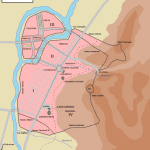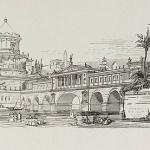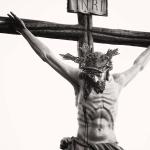Anyone listening to Mitt Romney today speaking at the Virginia Military Institute heard a moral vision that reminds us why it is so important to keep careful watch over our basic liberties at home as well:
I know many Americans are asking a different question: “Why us?” I know many Americans are asking whether our country today—with our ailing economy, and our massive debt, and after 11 years at war—is still capable of leading.
I believe that if America does not lead, others will—others who do not share our interests and our values—and the world will grow darker, for our friends and for us. America’s security and the cause of freedom cannot afford four more years like the last four years. I am running for President because I believe the leader of the free world has a duty, to our citizens, and to our friends everywhere, to use America’s great influence—wisely, with solemnity and without false pride, but also firmly and actively—to shape events in ways that secure our interests, further our values, prevent conflict, and make the world better—not perfect, but better.
Our friends and allies across the globe do not want less American leadership. They want more—more of our moral support, more of our security cooperation, more of our trade, and more of our assistance in building free societies and thriving economies. So many people across the world still look to America as the best hope of humankind. So many people still have faith in America. We must show them that we still have faith in ourselves—that we have the will and the wisdom to revive our stagnant economy, to roll back our unsustainable debt, to reform our government, to reverse the catastrophic cuts now threatening our national defense, to renew the sources of our great power, and to lead the course of human events.
During the foreign-policy address, he included the faces of women of the world, and one’s message in particular:
The attack on our Consulate in Benghazi on September 11th, 2012 was likely the work of forces affiliated with those that attacked our homeland on September 11th, 2001. This latest assault cannot be blamed on a reprehensible video insulting Islam, despite the Administration’s attempts to convince us of that for so long. No, as the Administration has finally conceded, these attacks were the deliberate work of terrorists who use violence to impose their dark ideology on others, especially women and girls; who are fighting to control much of the Middle East today; and who seek to wage perpetual war on the West.
We saw all of this in Benghazi last month—but we also saw something else, something hopeful. After the attack on our Consulate, tens of thousands of Libyans, most of them young people, held a massive protest in Benghazi against the very extremists who murdered our people. They waved signs that read, “The Ambassador was Libya’s friend” and “Libya is sorry.” They chanted “No to militias.” They marched, unarmed, to the terrorist compound. Then they burned it to the ground. As one Libyan woman said, “We are not going to go from darkness to darkness.”
This is the struggle that is now shaking the entire Middle East to its foundation. It is the struggle of millions and millions of people—men and women, young and old, Muslims, Christians and non-believers—all of whom have had enough of the darkness. It is a struggle for the dignity that comes with freedom, and opportunity, and the right to live under laws of our own making. It is a struggle that has unfolded under green banners in the streets of Iran, in the public squares of Tunisia and Egypt and Yemen, and in the fights for liberty in Iraq, and Afghanistan, and Libya, and now Syria. In short, it is a struggle between liberty and tyranny, justice and oppression, hope and despair.
There is a teenager named Rimsha in Pakistan, too, to keep in mind when we talk about our domestic defense of religious liberty. Informed voting here matters the world over.















